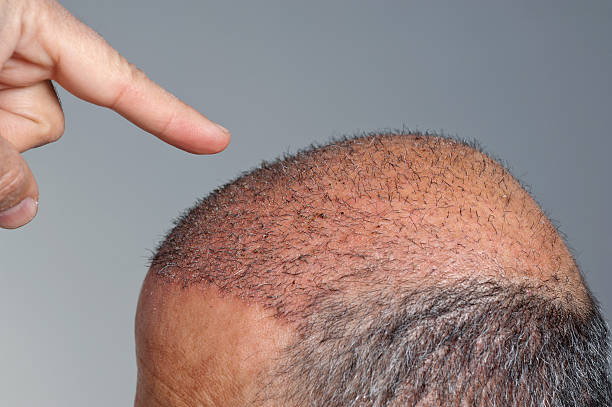Beauty Sleep: The Science of Overnight Skin Renewal
The concept of "beauty sleep" has long been a part of our cultural lexicon, but recent scientific advancements have revealed that there's far more to this phenomenon than meets the eye. As we slumber, our bodies engage in a complex series of restorative processes that directly impact our skin's health and appearance. This nocturnal renewal goes beyond mere rest, involving intricate cellular mechanisms that work tirelessly while we dream. Understanding the science behind beauty sleep not only validates age-old wisdom but also opens up new avenues for optimizing our nightly skincare routines. By delving into the fascinating world of circadian rhythms, cellular regeneration, and the skin's nighttime functions, we can unlock the secrets to waking up with a naturally radiant complexion.

Research has shown that skin cell proliferation nearly doubles at night, peaking between 11 PM and 4 AM. This increased cellular activity is crucial for replacing damaged cells and maintaining skin elasticity. Additionally, the production of collagen, the protein responsible for skin’s structure and firmness, ramps up during sleep. Understanding this natural rhythm allows us to align our skincare routines with our body’s innate processes, maximizing the benefits of overnight treatments.
Hormonal Influences on Nocturnal Skin Renewal
The hormonal landscape undergoes significant changes as we transition from wakefulness to sleep. Melatonin, often referred to as the “sleep hormone,” plays a pivotal role in skin health. Beyond regulating our sleep-wake cycle, melatonin acts as a powerful antioxidant, protecting skin cells from oxidative stress and DNA damage.
Cortisol, the stress hormone, follows an inverse pattern to melatonin. Its levels are lowest during the night, creating an optimal environment for skin repair. This reduction in cortisol allows for increased blood flow to the skin, delivering essential nutrients and oxygen to support cellular regeneration.
Growth hormone, which stimulates cell reproduction and regeneration, peaks during deep sleep stages. This surge in growth hormone contributes to the production of new skin cells and the synthesis of proteins like collagen and elastin, essential for maintaining skin’s youthful appearance.
Transepidermal Water Loss and Overnight Hydration
One of the most critical aspects of skin health is hydration, and nighttime presents a unique challenge in this regard. Studies have shown that transepidermal water loss (TEWL), the process by which water passes from the dermis through the epidermis and evaporates from the skin’s surface, increases during sleep. This phenomenon is partly due to the skin’s elevated temperature and increased blood flow at night.
While increased TEWL might seem counterproductive to skin health, it actually creates an opportunity for enhanced absorption of skincare products. The skin’s permeability is higher at night, allowing for better penetration of active ingredients. This increased absorption, coupled with the skin’s natural repair processes, makes nighttime an ideal window for applying hydrating and nourishing treatments.
The Role of Sleep Stages in Skin Rejuvenation
Not all sleep is created equal when it comes to skin health. The different stages of sleep, particularly deep sleep and REM (Rapid Eye Movement) sleep, play distinct roles in skin rejuvenation. During deep sleep, the body releases growth hormone, which, as mentioned earlier, is crucial for cellular repair and collagen production.
REM sleep, characterized by increased brain activity and vivid dreams, is equally important for skin health. This stage is associated with increased blood flow throughout the body, including the skin. This enhanced circulation helps deliver nutrients and oxygen to skin cells, supporting their repair and renewal processes.
Disruptions to these sleep stages can have noticeable effects on skin appearance. Chronic sleep deprivation has been linked to accelerated skin aging, impaired barrier function, and increased susceptibility to environmental damage. Understanding the importance of quality sleep in skin health underscores the need for good sleep hygiene as part of a comprehensive skincare routine.
Optimizing Nighttime Skincare for Maximum Benefits
Armed with the knowledge of how our skin functions during sleep, we can tailor our nighttime skincare routines to maximize these natural processes. The key lies in choosing products and ingredients that complement and enhance the skin’s nocturnal activities.
Retinoids, for example, are particularly effective when applied at night. These vitamin A derivatives stimulate cell turnover and collagen production, aligning perfectly with the skin’s nighttime repair mode. However, they can increase skin sensitivity to sunlight, making evening application ideal.
Hyaluronic acid and ceramides are excellent choices for combating nighttime water loss. These ingredients help to lock in moisture and strengthen the skin barrier, supporting the skin’s natural hydration processes.
Antioxidants like vitamin C and E can be strategically applied at night to neutralize free radicals generated during the day and support the skin’s repair mechanisms. While vitamin C is often associated with daytime use for its photoprotective properties, nighttime application can be beneficial for its role in collagen synthesis.
Conclusion
The science of beauty sleep reveals a complex interplay of biological processes that work in harmony to renew and rejuvenate our skin. By understanding these mechanisms, we can move beyond simplistic notions of “getting our beauty rest” and towards a more nuanced approach to nighttime skincare. Aligning our routines with the skin’s natural circadian rhythms, hormonal fluctuations, and repair processes allows us to harness the full potential of our sleep for skin health.
As research in this field continues to evolve, we can expect even more targeted approaches to overnight skincare. From chronobiology-based formulations to sleep-enhancing technologies, the future of beauty sleep looks bright. By embracing these scientific insights and integrating them into our nightly rituals, we can wake up to healthier, more radiant skin, truly embodying the transformative power of beauty sleep.





